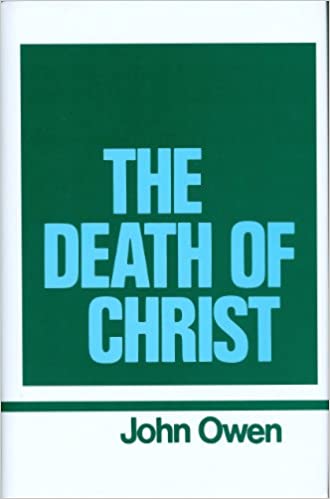A Brief Book Summary from Books At a Glance
by Steve West
Editor’s Note: Most of our readers will already be at least somewhat acquainted with John Owen (1616-1683), “the prince of Puritans,” but it is not likely that many have read him extensively. His works are not only voluminous – they are tightly packed and deeply considered. Owen is neither quick nor light reading!
Today we continue our year-long series of summaries of Owen’s famous works. We trust these will be of help in introducing and/or increasing your acquaintance with this giant Puritan theologian.
Summary, Part 3
The Death of Death in the Death of Christ
Book I
The end of the death of Christ refers to both what the Father intended in it, and also what was fulfilled and accomplished by it. Christ came into the world to save and redeem sinners, and he did so by dying for the church. Reconciliation, justification, sanctification, adoption, and glorification are all purchased by Christ’s shed blood. Everything we need for grace now and for glory eternally was bought by Christ. Instead of acknowledging these truths, some maintain that God only had a general design in the atonement, rather than having Christ efficaciously secure salvation for the elect. A rational agent has an end in mind in every action, and they choose means that are in accord with the end in view. God can never have a misalignment between the ends and means that he ordains. God ordained the death of Christ to satisfy his justice, for the purposes of his glory.
It is the entire Trinity that is the agent of the work of redemption, and they agree completely in their wills, as is fitting to their persons. The distinctive acts of the Father are sending his Son into the world to shed his blood and laying the punishment for our sin upon him. God the Father lays upon the Son the role of mediator, and the Son accepts it willingly. He was inaugurated into his office, set apart, and anointed for his responsibility and work. There are numerous prophecies and teachings about Christ’s mediatorial work, as well as those who are blessed by it. The Father sent Christ with all of the grace and gifts he needed to discharge the duties of his offices. As God, the Son was perfect, and his human nature was filled with every grace in the highest degree. It is from his overflowing resources of grace that we receive grace and the Spirit. Father and Son entered into covenant with each other that the Son would succeed in redeeming the elect, and this is what enabled the Son to endure every trial and his death on the cross. It was God’s intention that the Son redeem people from all over the world, saving the church. The Father gives the Son a particular people, and the Son atones for their sins and sanctifies them through and through. He does this, as numerous passages attest, by bearing their guilt and the penalty for their sins. Christ was perfect in righteousness but he was made sin for us and was struck for our iniquities. . . .
[To continue reading this summary, please see below....]The remainder of this article is premium content. Become a member to continue reading.
Already have an account? Sign In
